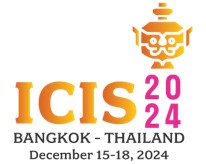Paper Number
1795
Paper Type
Complete
Abstract
Our study reveals that early career female IS professionals occupying less technical roles, such as business- or design-oriented, in information system development projects are prone to workplace mistreatment. We investigated through a longitudinal case study how early career IS professionals use different voice (and silence) behaviors as coping mechanisms to tackle mistreatment to cope with mistreatment. Through yearly narrative interviews for four years, we discovered that professionals experienced role-based mistreatment – which took place through structural and interpersonal means. Professionals shared similar voice and well-being trajectories, in that they started off as engaged (engaging in constructive voice to improve the situation) but ended up disengaged (silenced) and resigned (e.g., lost hope, left for sick leave). We provide explanations to why shifts in voice behaviors take place, and how such voice trajectories impact professionals’ well-being over time. Our study contributes to theory on voice processes and prolonged mistreatment among female IS professionals.
Recommended Citation
Hekkala, Riitta and Nordbäck, Emma, "Early Career Female IT Professionals’ Voice (and Silence) as Coping Mechanisms to Tackle Mistreatment in ISD project" (2024). ICIS 2024 Proceedings. 12.
https://aisel.aisnet.org/icis2024/isdesign/isdesign/12
Early Career Female IT Professionals’ Voice (and Silence) as Coping Mechanisms to Tackle Mistreatment in ISD project
Our study reveals that early career female IS professionals occupying less technical roles, such as business- or design-oriented, in information system development projects are prone to workplace mistreatment. We investigated through a longitudinal case study how early career IS professionals use different voice (and silence) behaviors as coping mechanisms to tackle mistreatment to cope with mistreatment. Through yearly narrative interviews for four years, we discovered that professionals experienced role-based mistreatment – which took place through structural and interpersonal means. Professionals shared similar voice and well-being trajectories, in that they started off as engaged (engaging in constructive voice to improve the situation) but ended up disengaged (silenced) and resigned (e.g., lost hope, left for sick leave). We provide explanations to why shifts in voice behaviors take place, and how such voice trajectories impact professionals’ well-being over time. Our study contributes to theory on voice processes and prolonged mistreatment among female IS professionals.
When commenting on articles, please be friendly, welcoming, respectful and abide by the AIS eLibrary Discussion Thread Code of Conduct posted here.



Comments
11-PM